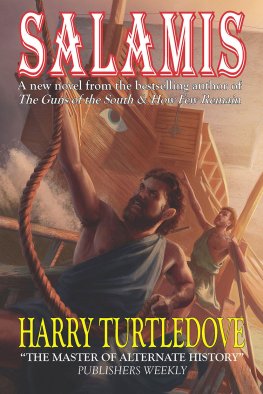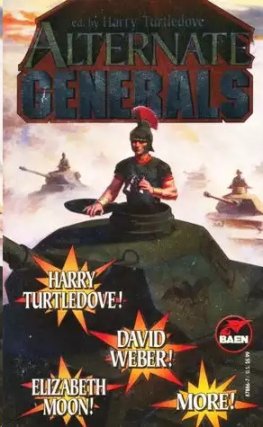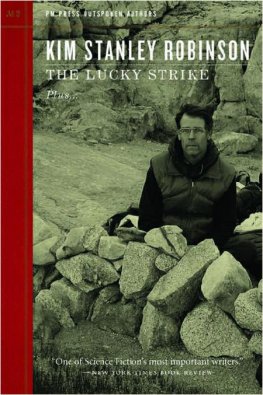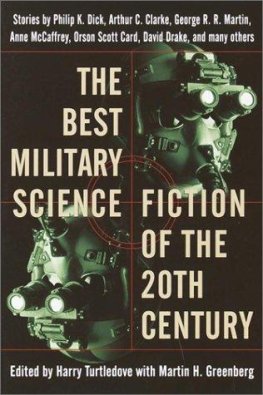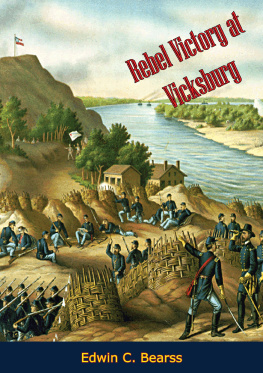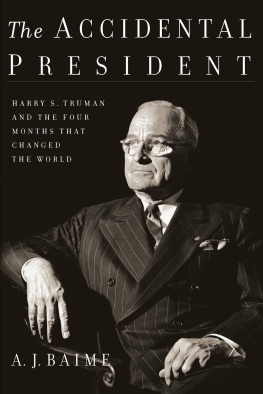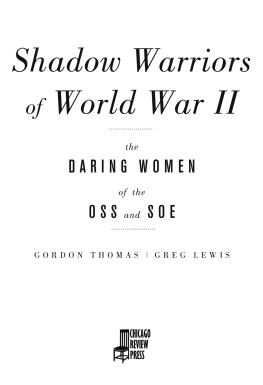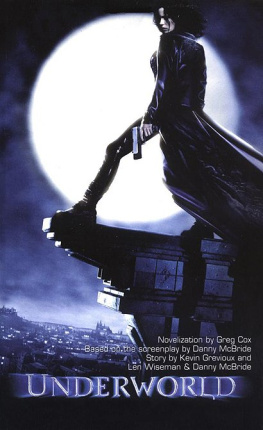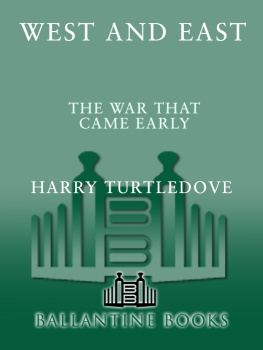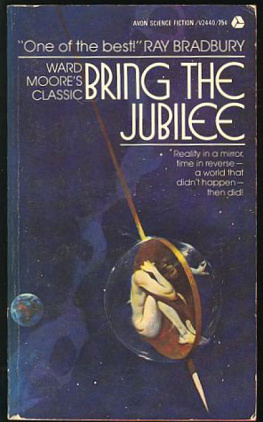THE BEST ALTERNATE HISTORY STORIES OF THE 20TH CENTURY
Edited by Harry Turtledove with Martin H. Greenberg
INTRODUCTION
Harry Turtledove
WHAT IF
Most science-fiction ideas dont come naturally. Most take a degree of intellectual sophistication that came only with the Industrial Revolution. Its hard to write about the effects of technology before theres much in the way of technology to write about. But alternate history isnt like that. Its as natural as those two mournful little words up there. What if
What if Id married Lucy instead of Martha, George instead of Fred? What would my life be like? Would I be richer? Happier? What would our kids have been like, if wed had kids? What if there hadnt been that traffic accident that clogged three lanes of the freeway, so I wasnt late to the interview? How would things have looked if Id got that job? Orlets not think smallwhat if I won the lottery? How would I live if I had sixty million dollars in the bank?
In our own lives, we endlessly imagine these scenarios. We cant help it. Theres always the feeling that were inside Gods pinball machine, bouncing through life and off bumpers at random, and that we could have ended up elsewhere as easily as where we did.
Its certainly true for me. If I hadnt read a particular bookLest Darkness Fall, by L. Sprague de Campwhen I was about fourteen years old, I wouldnt have ended up with the degree I have (a doctorate in, God help me, Byzantine history), wouldnt have written much of what Ive written (I surely wouldnt be working on this introduction now), wouldnt have met the lady Im married to, wouldnt have the kids I have. Other than that, it didnt change my life a bit. If someone else had taken that novel out of the secondhand bookstore where I found it
And from there, from the sense that individuals lives might be plastic, mutable, comes the sense that the wider world might work the same way. A horse! A horse! My kingdom for a horse! Richard III cried. What if hed got that horse, instead of going down to defeat and death because he didnt? What would England be like today? No different at all? A little different? A lot different? How can we know?
Well, we cant know, not in any absolute sense. Whatever else history may be, its not an experimental science. How can we make plausible guesses, interesting guesses, entertaining guesses? This is the way in which the alternate-history story was born.
The subgenre is a lot older than you might think, too. As Ive noted, alternate history doesnt require a relatively high-tech background. All it requires is the ability to extrapolate from the individual to the wider world, the intuitive leap that lets you see that, just as small things can change individual lives, they can also change wider affairs.
The first person of whom Im aware who made this leap was the Roman historian Livy, who wrote about the time of Christ. In Book IX, sections 1719, of his monumental (so monumental that it was frequently abridged and extracted, and does not survive complete) History of Rome from Its Foundation, Livy wonders what would have happened if Alexander the Great had turned his attention to the west and attacked the Roman Republic in the late fourth century B.C. With fine Roman patriotism, he tries to show that his countrymen could and would have beaten the Macedonian king. My own opinion is that Livy was an optimist, but thats neither here nor there. He clearly invented the game of alternate historynot a small achievement for a man who has been criticized for the past two thousand years as one who made his history with scissors and paste, taking it all from the works of those who went before him and piecing those works together into a continuous narrative as best he could.
Livy proved to be ahead of his time, as inventors sometimes are. In his case, he was further ahead of his time than most: about eighteen hundred years ahead. Not till the aftermath of Napoleons downfall did alternate history rear its head again, with several French novelists wondering what might have been had the defeated emperor proved triumphant.
It is not till the twentieth century that mostnot all, but mostalternate history came to be reckoned part of that new and sometimes strange kid on the literary block, science fiction. To this day, some people wonder why this identification was made. I have a couple of reasons to propose. For one thing, people who wrote other forms of science fiction also came to write alternate-history stories. And, for another, alternate history plays by some of the same rules as (other) varieties of science fiction. In many science-fiction stories, the author changes one thing in the present or nearer future, and speculates about what would happen in the more distant future as a result of the change. Alternate history goes down the same road, but from a different starting point. It usually changes one thing in the more distant past and speculates about what would have happened in the nearer past or the present. The relationship seems obvious.
The American Civil War has offered aficionados of the subgenre a playground full of toys ever since a still fell at Appomattox. In fact, many Civil War officers memoirs read as if they were alternate history, with the authors trying to seize credit for everything that went right anywhere near them and blaming incompetent subordinates and superiors for everything that went wrong. But, as their purpose was to make themselves look good rather than really to examine what might have been, they cannot in fact be included among early alternate historians.
The crowded, chaotic twentieth century saw the true rise of alternate history. Murray Leinsters seminal story, Sidewise in Time (after which the Sidewise Award for alternate history is named), introduced this type of story to the science-fiction pulp magazines. But alternate history was also the province of intellectuals on a lark. In 1931, for example, Winston Churchills essay If Lee Had Not Won the Battle of Gettysburg examined the possible consequences of a Northern victory in the Civil War in a world where the South won ita neat double twist. And, in the second volume of his A Study of History, Arnold Toynbee, in The Forfeited Birthright of the Abortive Far Western Christian Civilization, postulated a world in which Celtic Christianity had survived along with the Roman variety, and in which the Muslims defeated the Franks at the Battle of Tours in 732.
This latter speculation was later fictionalized by L. Sprague de Camp in his classic novella, The Wheels of If, which imagined a modern lawyer from our world transported to the twentieth century of that one. That novella, along with de Camps even more important novel, Lest Darkness Fall, in which an archaeologist is dropped back into the Rome of the sixth century A.D., and seeks to keep the Dark Ages from descending on Europe by propping up the Ostrogothic Kingdom of Italy against the resurgent Byzantine Empire and by improving technology, finished the job begun by Leinsters story and brought alternate-historical speculation into the orbit of science fiction.
In the years following World War II, a few writers followed de Camps lead and produced thoughtful alternate histories of their own. H. Beam Pipers Paratime stories and Poul Andersons tales of the Time Patrol (and, in a different vein, his stories collected in Operation Chaos, in which magic reappeared in the world as a technology around the beginning of the twentieth century) stand out among these.
For the centennial of the War Between the States, Pulitzer Prize winner MacKinlay Kantor wrote If the South Had Won the Civil War, an optimistic scenario in which the severed parts of our nation reunite in the 1960s. Also coming into prominence during the decades following the end of the Second World War were stories in which the Axis won, which have challenged stories of Confederate victories in the Civil War for popularity. Three of the best of the earlier ones were Sarbans


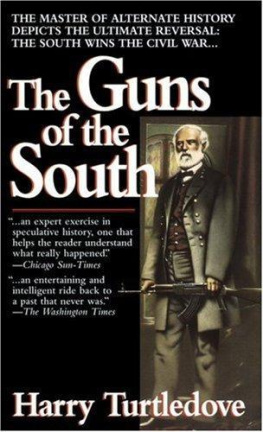
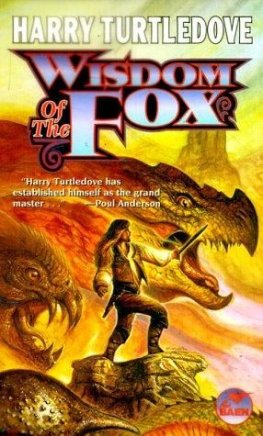
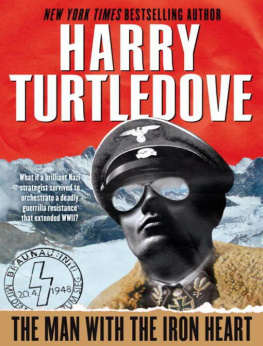
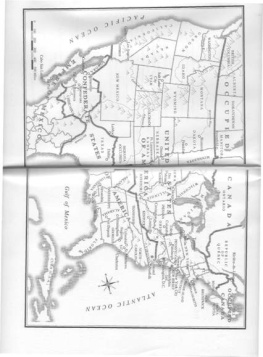
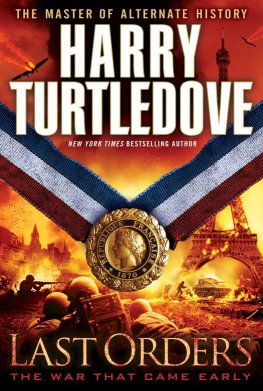
![Harry Turtledove - Worlds that werent : [novellas of alternate history]](/uploads/posts/book/79050/thumbs/harry-turtledove-worlds-that-weren-t-novellas.jpg)
